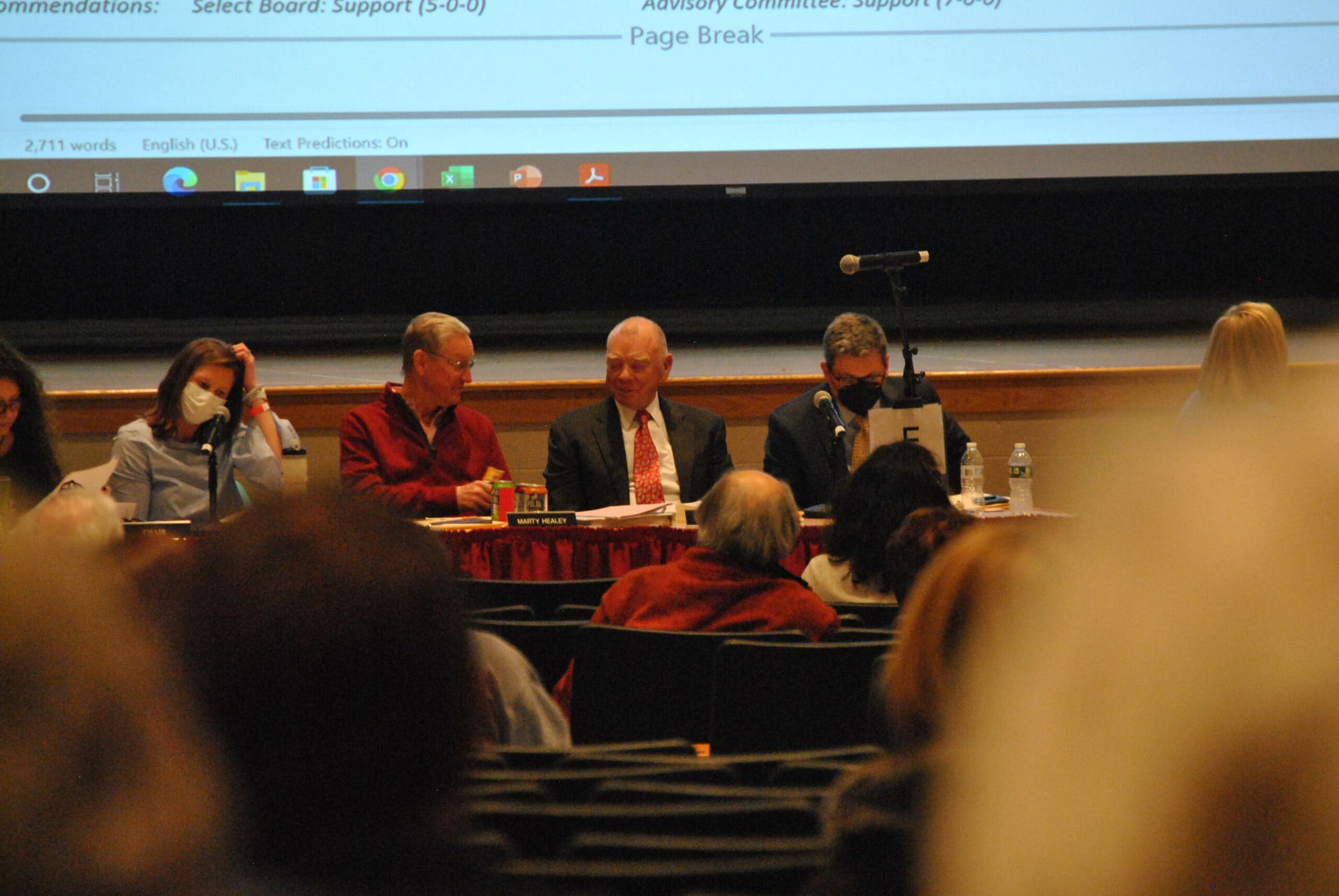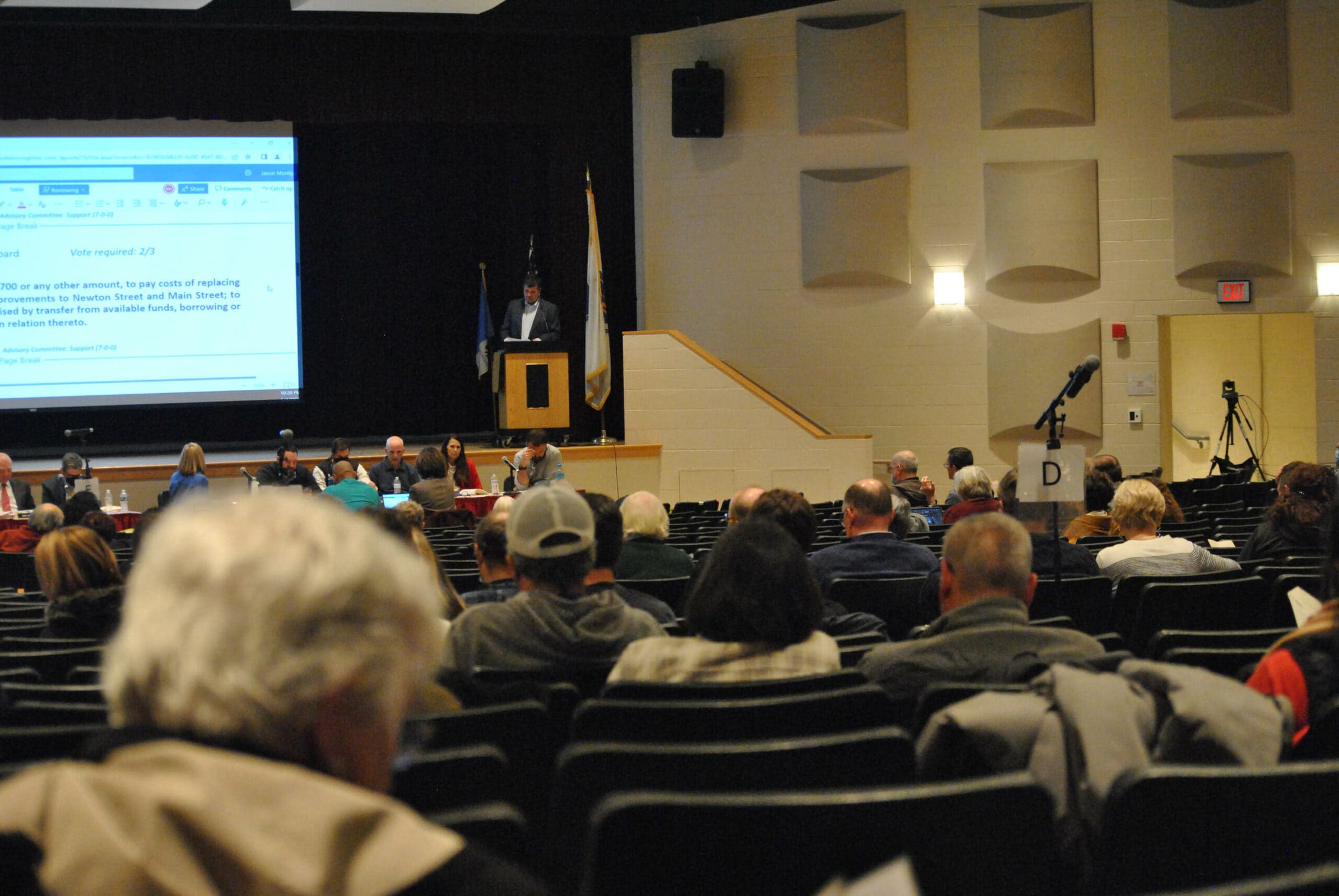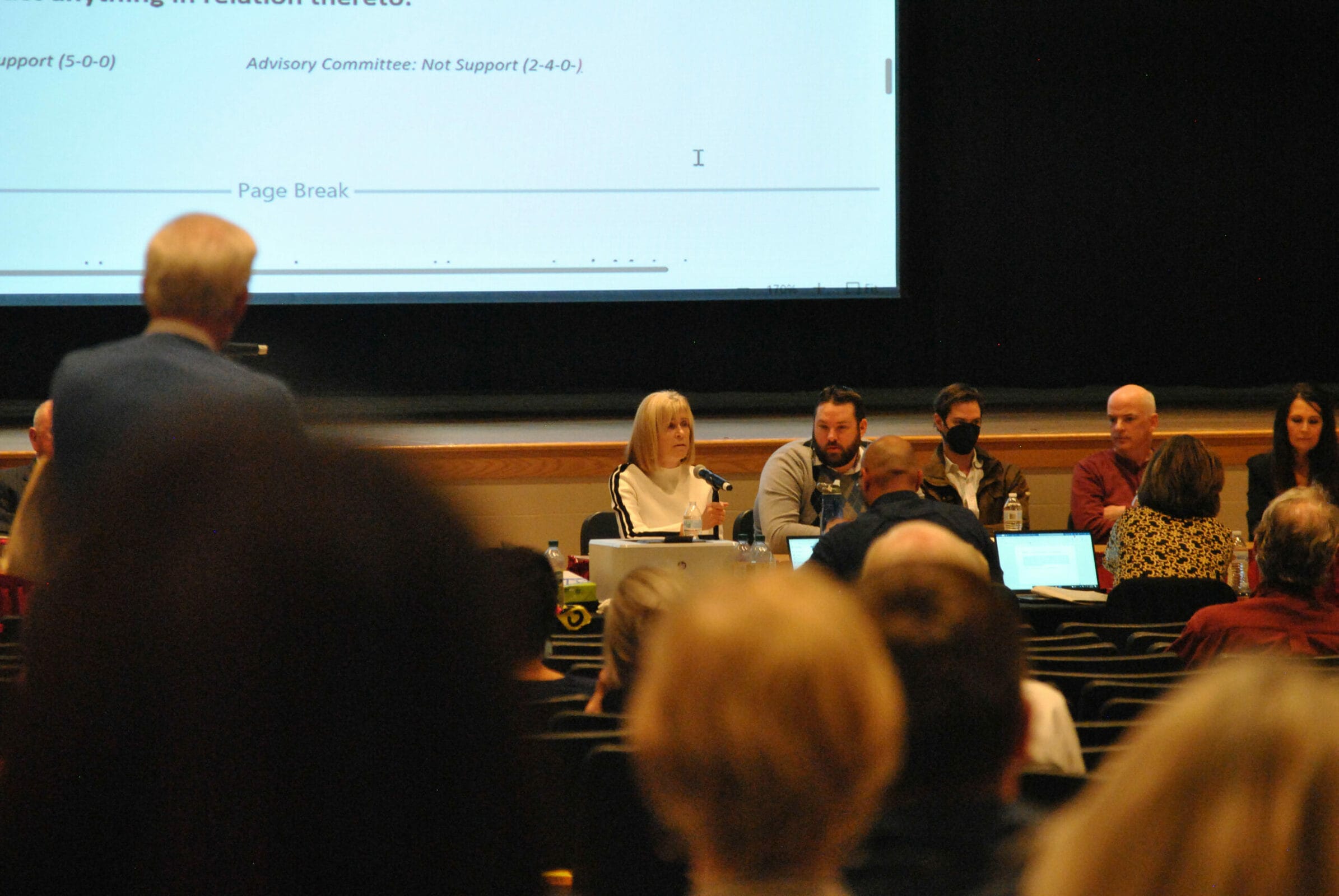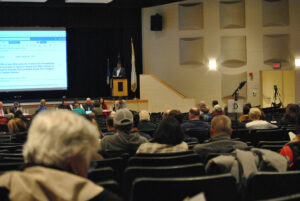
SOUTHBOROUGH – Southborough voters completed this year’s annual Town Meeting last week, navigating a busy warrant that prompted debate over two nights at Algonquin Regional High School.
Among the votes, Town Meeting approved a feasibility study for the Neary Elementary School in town. A proposed noise bylaw also passed, as did a citizen petition seeking to create a standing committee focused on payment in lieu of taxes (PILOT) contributions from Southborough’s large nonprofit schools.
Neary feasibility study approved
One article specifically asked voters to appropriate $950,000 to assess current conditions as well as next steps for envisioned work at Neary Elementary School.
This approval comes as the town also eyes potentially consolidating Southborough’s school facilities and decommissioning Woodward Elementary School.
Woodward could then be put to municipal use as Southborough considers relocating some of its town offices in accordance with a recommendation delivered by town consultants earlier this year.
Speaking on the first night of Town Meeting May 4, and writing in materials handed out to voters, supporters of the article stressed that this feasibility study remains a crucial but preliminary step for any work at Neary.
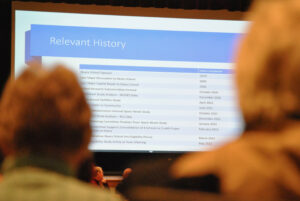
Town officials said they don’t know if the results of this study will lead to a renovation project or, alternatively, a complete rebuild of the school.
They noted, however, that a known list of needed fixes would cost enough to trigger additional mandatory renovations under the Americans with Disabilities Act and building codes that could drive up the price tag on a Neary project.
“All of this would also ignore educational programming and function of the space, and leave the Town in a position to continue to patch together a solution that has no long-term vision,” a frequently asked questions sheet shared with voters said.
Speaking following an initial presentation on this article, some residents raised concerns about the nearly $1 million feasibility study’s cost and broader school district restructuring plans.
Among them, Advisory Committee member Timothy Martel explained his “no” vote against recommending the feasibility study article for approval.
He contrasted what he said could be the approximately $60 million cost of closing the Woodward School and renovating the Neary School, with what he said would be much lower costs of keeping Woodward open and closing Neary under a proposed consolidation push.
“While it’s understandable from a functional perspective, while the schools would prefer to have Neary open,” he said “…when you look at the financial impact on the town adding a $60 million bond and what that will do to some of the more vulnerable members of our community, it doesn’t make sense to spend a million dollars to try to decide whether or not we want to spend $60 million a couple years later.”
Supporters of the feasibility study article and the proposed decommissioning of Woodward have said that an alternative closure of Neary is simply not an option.
Building occupancy limits would hamper adding even a single new grade at Woodward in particular, they’ve said.
Logistical challenges within the school would further create problems for students and their teachers, forcing early lunch times, among other things, even if occupancy limits were not an issue, according to that frequently asked questions page.
Speaking prior to the larger discussion on the issue, Capital Planning Chair Jason Malinowski reiterated that this process differs from past construction projects, like the construction of Southborough’s Public Safety building, which bundled authorizations of feasibility and construction spending.
“By voting yes for this tonight, you are not voting for a construction project; you’re voting for a building committee to bring back all options that were considered and what the preferred path forward is,” Malinowski said.
He added that the stated $950,000 feasibility study cost could fall to as low as $589,000 under a potential reimbursement if Southborough moves forward in the Massachusetts School Building Association process, into which it has already been accepted.
Ultimately, Malinowski said, this study would have “zero impact” on the 2023 Fiscal Year budget and potential tax bills.
Voters ultimately decided to approve the feasibility study.
The first night of Town Meeting ended shortly after discussion came to a close on this article.
Noise bylaw passes
On the second night, voters subsequently dug into a number of topics, including a proposed noise bylaw.
This bylaw would limit certain kinds of noises to specific hours, imposing fines on violators and giving police new options in responding to noise complaints.
“Noise enforcement is not possible without a bylaw on the books,” a frequently asked question sheet explaining the bylaw explained.
Proposed as a citizen petition a year ago, the first iteration of the bylaw failed to gain voter approval. It instead prompted the creation of an ad hoc committee to help develop a new version of the bylaw.
Now back before voters, the bylaw drew some criticism, with some voters arguing for more stringent noise limitations and others arguing that the bylaw went too far, particularly imposing unfair restrictions on contractors who may need to do work in early morning hours to avoid mid-day summer heat.
The noise bylaw eventually passed, however, by a narrow 69-61 margin.
PILOT Committee article passes
Town Meeting wound down last week with a quartet of citizens petitions.
Among those, an article to create a new standing PILOT Committee passed, capping discussion that had emerged during several previous articles about Southborough’s multiple large non-profit schools.
Those include the Fay School, the St. Mark’s School, and the New England Center for Children.
Exempt from paying property taxes, those facilities have negotiated various PILOT contributions to Southborough.
Residents have noted frustrations about these payments, though, calling for more money from the schools.
“Isn’t it reasonable to expect private non-profit schools to be good citizens of the community, contribute fairly to the cost of the town services they, their staff, students, faculty and families use?” petitioner Patricia Burns Fiore said in her article presentation.
Fiore previously won Town Meeting approval of an article in 2019 calling on the Select Board to revive a dormant PILOT committee. However, the board opted against seating a committee at that time, with Select Board member Marty Healey instead serving as a liaison in new talks with Fay and St. Marks.
Healey explained that decision, saying the board had noted downsides to holding negotiations with school officials in public meetings.
“That’s not how negotiations function effectively,” he said.
Operating with Healey heading negotiations has led schools to increase their contributions to Southborough “significantly” over the last three years, Healey said.
“More important than that, though, is that they understand very clearly where the town is coming from, that the town would like them to contribute more,” he continued.
Healey opted to not run for re-election following his term, which ends this week.
Continuing his comments, he argued against the PILOT committee proposal, saying the board should stick with a process that he said has been successful.
Town Meeting ultimately voted in favor of Fiore’s proposal, approving the creation of a PILOT Committee with an amendment from Fiore adjusting the committee’s makeup to include a member of the Select Board in place of an initially proposed seat for a member of the Advisory Committee.
Beyond Neary, the noise bylaw and the PILOT committee, Town Meeting saw extensive debate over police, board of health and school budgets.
Further discussion focused on an article to convert the Ad Hoc Trails Committee into a full-fledged standing committee, among other things.
Recordings of both nights of this year’s Town Meeting, including debate on a wide array of other articles are available online at https://www.youtube.com/watch?v=lwYFSngYyu0 and https://www.youtube.com/watch?v=9_vlXS8n3N0.
RELATED CONTENT
Southborough residents weigh in on proposed noise bylaw through survey
Southborough noise bylaw added to Town Meeting Warrant






